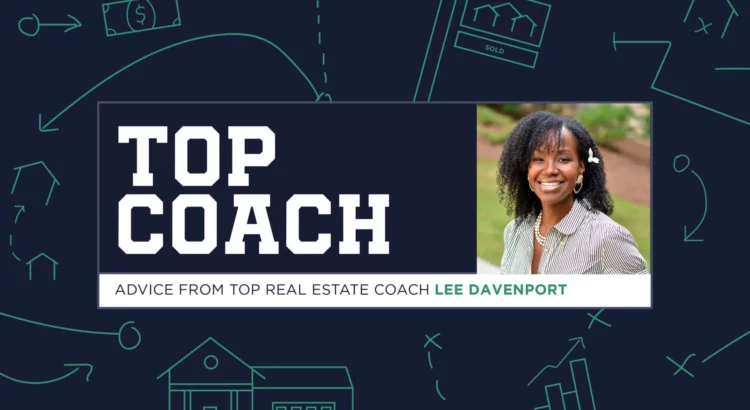Let’s play a quick round of “Guess Who?” — marketing tech edition.
Google is jealous that 40% of Gen Z use me [along with TikTok] as their top search engine.
I’m the No. 1 social media platform for people to connect with brands [like realty firms/Realtors!].
It’s been predicted that 35% of my users will make a purchase on my platform in 2023.
Amazon might need to move over, because 47% of American shoppers make purchases via my app.
What social media network am I?
In short, because we as real estate agents and brokers have products [homes/land/properties] and services [us!] to offer, Instagram is a powerful place to be. I dare say marketing ourselves on Instagram has felt like a gold rush of clients and closings for many of us over the last decade.
Is it too late to join or get active and generate leads for your real estate sales business? Instagram is still the most downloaded app in the world and the fourth-most popular network. That means there is still time to get it while the getting is good!
But here’s the thing: Being on Instagram and getting likes is NOT the same as growing your business on Instagram.
When I teach this class live, this is often the pain point with which people come into the class: “I’m doing all the things on Instagram like having color-coordinated posts and reels. I have a nice logo. I am posting at what some have said are the ‘best’ times and anything else various social media [*note: often non-real estate] gurus tell me. But I don’t have any deals from it.”
If that frustrated statement describes you, I want you to move away from the cutesy aesthetics of “doing it for the ’Gram,” because being “matchy matchy” is not bad but does not necessarily equate to leads. Instead, focus on what the agents I coach who are making $10 million-plus from solely Instagram lead generation know are the key components of every single post:
Image [referring to having an engaging/inspiring visual such as a video/reel, photo or infographic/text].
Story [this is tea time where you can be a storyteller].
Tags [geo — never the exact location for safety, hash, user: collab with and shout out others].
CTA [this is the call-to-action that motivates people to move from being a spectator to a participant].
For the sake of this article not turning into another doctoral dissertation [I am sure you do not have time to read a novel, ha!], let’s cover a couple of points from item No. 4, the call to action.
To begin, a call to action simply gives people direction so they can move from spectator to participant. I like to explain it as “Simon Says” for social media. If you have ever played or watched “Simon Says,” then you may remember that no one was to make a move until a phrase was given that included “Simon Says.” In this age of speed swiping and doomscrolling, many of us will not leave our feed of endless posts and videos to go to someone’s page, profile or website, which is where we more easily capture leads, if we are not given a “Simon Says” phrase, aka a call to action.
Here are some popular calls to actions, as generated from the popular AI tool ChatGPT (which, by the way, you can use to craft your own CTAs). Just be mindful of the law, including fair housing:
• Double-tap if you agree.
• Tag a friend who needs to see this!
• Click the link in our bio to learn more!
But let’s get specific to real estate. For example, in your stories you can share a fun fact or cool program via a photo or video and then use the free poll feature or Add Yours stickers to ask viewers if they have heard of it or not.
See my example where 85% of 185 responses tapped “had no clue.” That’s approximately 157 leads within 24 hours of posting one story! Can you imagine if you did this at least weekly? This becomes an excellent way to generate leads from those that said they “had no clue.”
As a twofer, you also get to stay top of mind with others who have responded [built in follow-up to the remaining 15%]. Boom!
I challenge you to feature at least one helpful real estate/housing-related program a week with a CTA. It could be something that your office is offering. It could be a program by a lender. It could be a cool option by a community organization in your area for homebuyers, homesellers, renters or landlords. You may want to feature local programs, but remember that there are also state and national programs that would be beneficial to your audience and will simultaneously position you in their minds as their trusted real estate professional. Double boom!
Interested in more on How to Strike Instagram Gold? Check out the complimentary webinar of the same name I am doing, hosted by The Residential Real Estate Council (formerly Council of Residential Specialists) on June 21, or watch the replay afterward. You’ve got this!
Dr. Lee Davenport is a real estate educator and former RE/MAX managing broker and agent. She is recognized as one of the top real estate coaches in the U.S. by multiple real estate organizations. Her doctoral research examined the lead-generation strategies of top agents.


